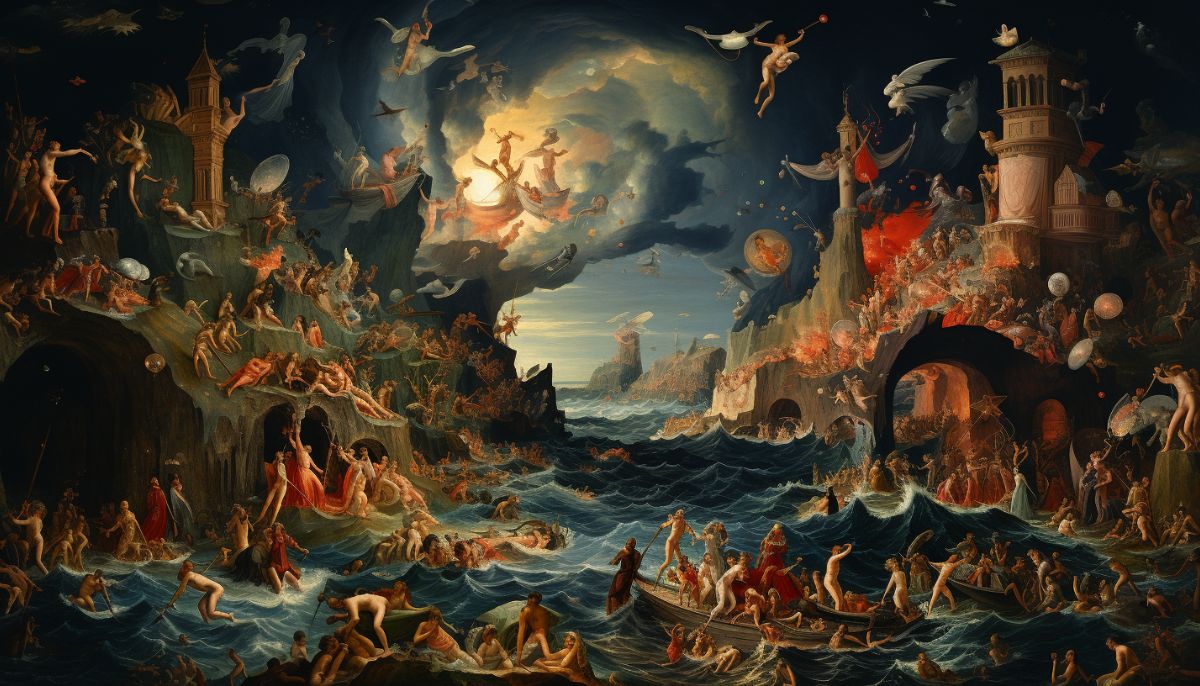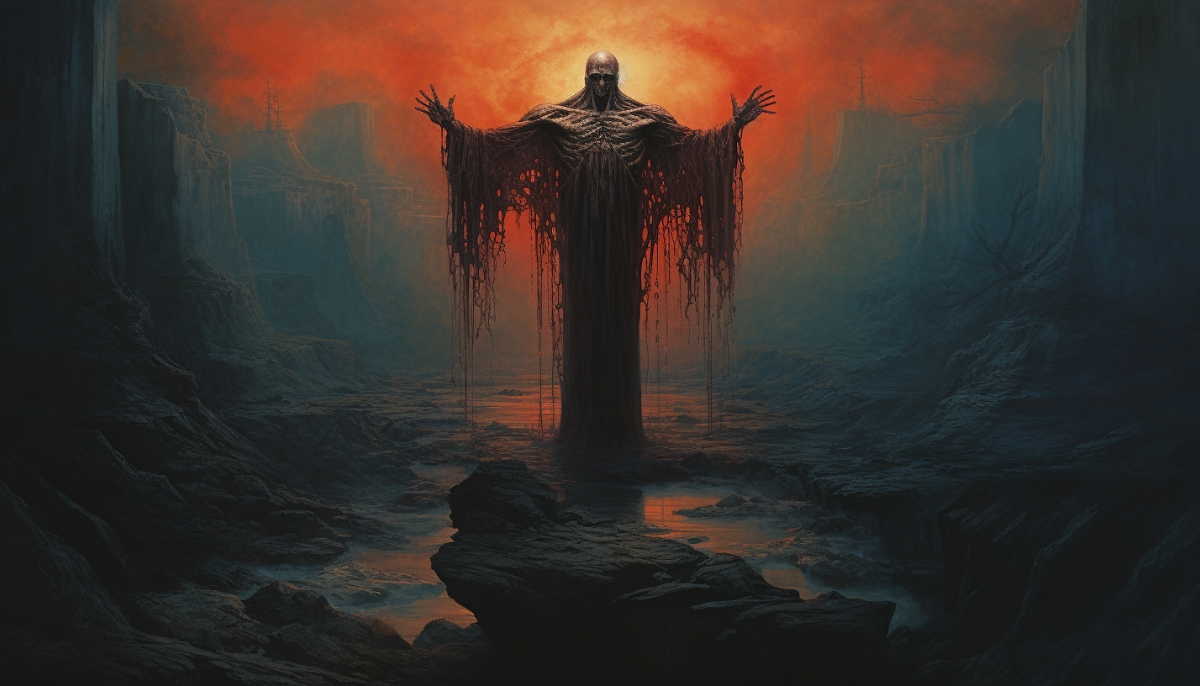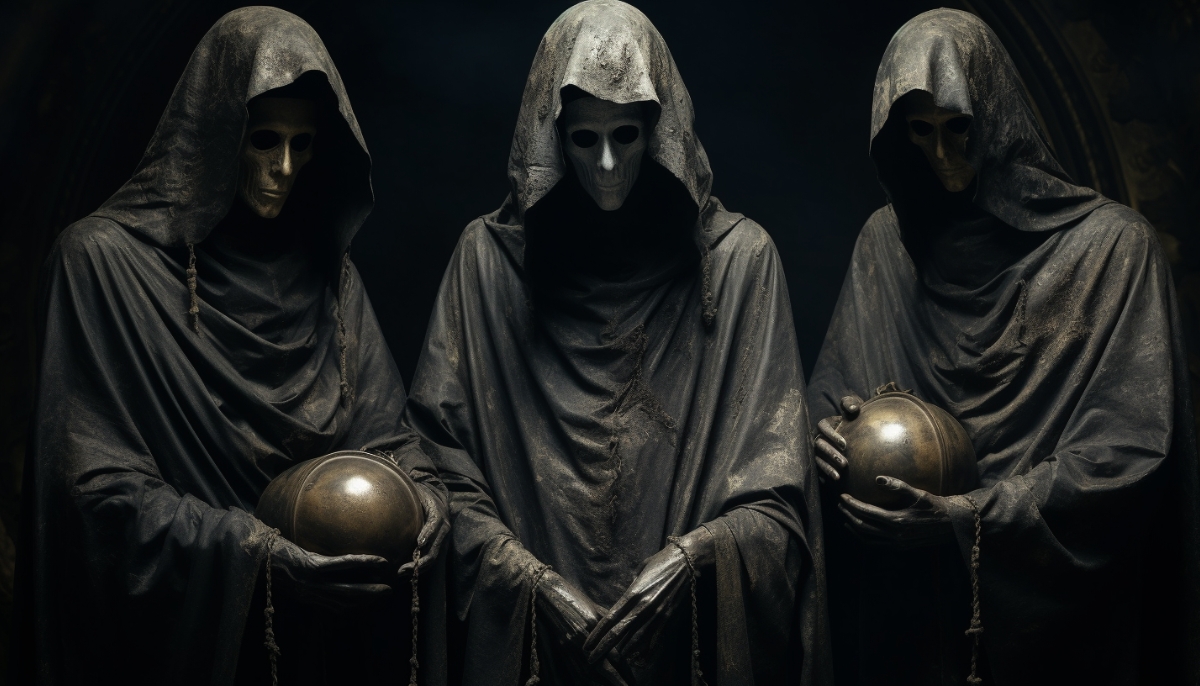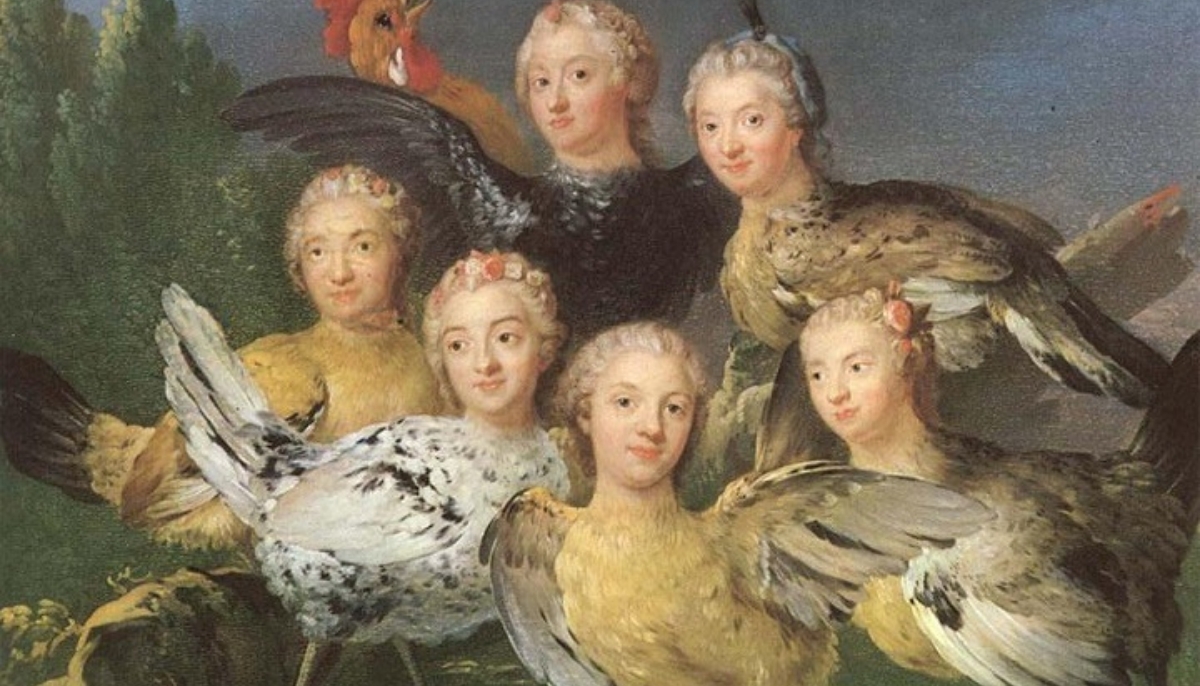Greek mythology, a realm teeming with gods, heroes, and epic tales, weaves a captivating tapestry of narratives that transcend time and culture.
As we embark on a journey through the annals of these ageless sagas, we delve into the intricate web of the chronology of Greek mythology. Beyond mere stories, these sagas mirror the evolution of human understanding, historical perspectives, and the rich complexities that define the human experience.
Join us as we uncover the chronological stages of this mythic odyssey, navigating through the Cosmogonic, Heroic, Migration, Colonial, and Historical Ages, and unraveling the threads that connect myth to history, past to present, and gods to mortals.
Is there an agreed chronological order to the sagas of Greek Mythology?
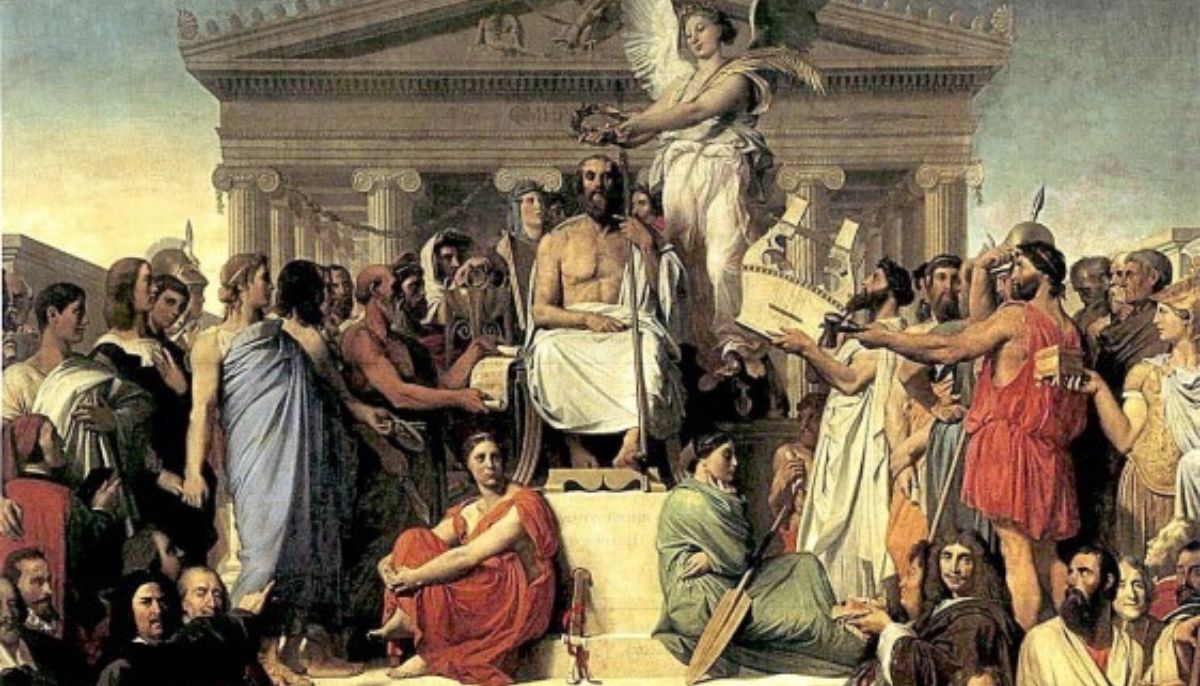
Unlike a neatly organized historical timeline, Greek mythology’s chronology resembles a complex narrative labyrinth that walks the fine line between myth and history. While historical accounts offer clear-cut dates and events, Greek mythology blurs these boundaries, making a seamless and linear chronology difficult to discern.
As we delve into the intricate weave of these sagas, it becomes evident that Greek myth embraces a captivating messiness—an amalgamation of divine tales, heroic feats, and the nuances of a society’s historical evolution.
From Myth to History
At the dawn of our understanding of Greek mythology, the narratives are heavily steeped in the mythical realm, where gods interact with mortals, shaping the cosmos. However, as we progress toward the end of the classical Greek era, these sagas blur the lines between myth and historical fact, mirroring the shift from legendary accounts to recorded events.
It’s important to grasp the dynamic nature of Greek myth’s chronology—a fluid trajectory that transcends traditional linear progression. Instead, we can view it as a journey from the mythic inception to a more historical understanding, traversing the fascinating realms of cosmogonic origins, heroic exploits, societal transitions, and eventually, the embrace of historical context.
The Five Ages of Greek Mythology
In the heart of Greek mythology, a poetic chronicle emerges from the verses of Hesiod, outlining the distinct Ages of Man that span from myth’s pure inception to a fascinating blend of myth and history. As we delve into these evocative stages, we journey through a progression that mirrors the evolution of the human experience and the narratives that define it.
Golden Age
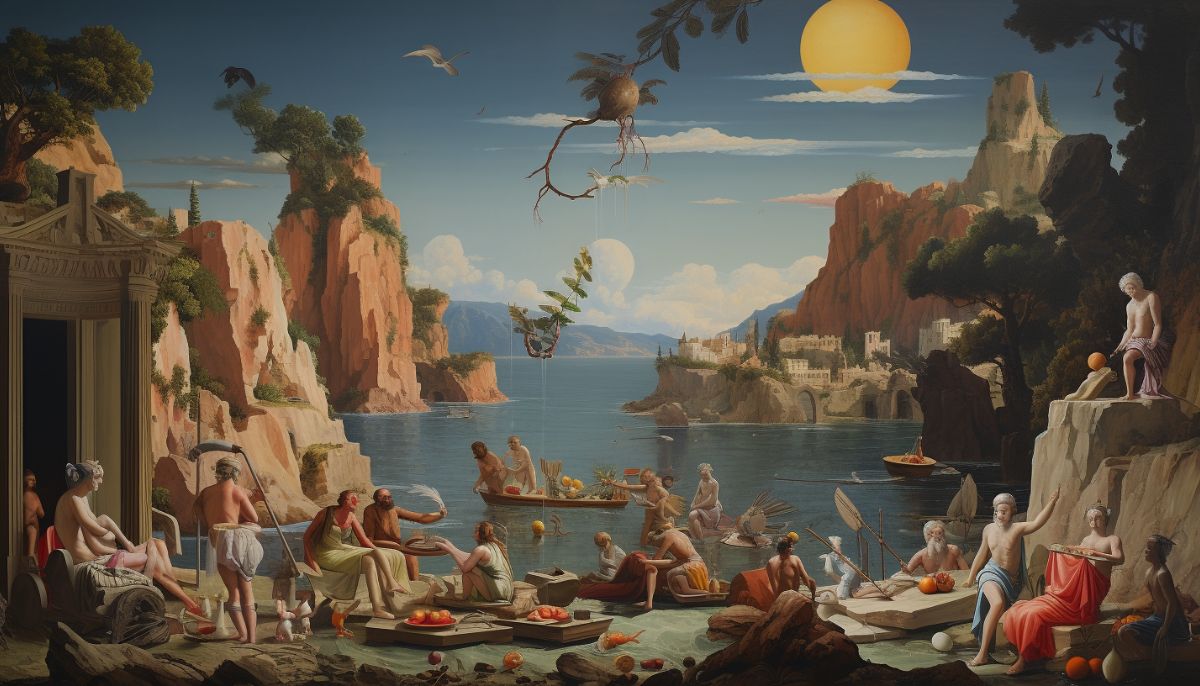
The journey through the Greek Ages of Man begins with the ethereal embrace of the Golden Age—a time steeped in pure myth and divine intertwinings. In this pristine epoch, humanity existed in a realm where gods and mortals coexisted in serene harmony. The age was ruled by the Titan Chronos, known to the Romans as Saturn, who governed time itself, orchestrating an era untouched by the chaos of war or conflict.
This golden era paints a portrait of humanity unburdened by strife, a utopian landscape where abundance was abundant, and ease flowed like the gentlest breeze. It was a period when nature was in symphonic harmony, yielding its gifts effortlessly, while humanity reveled in a tranquil existence. As mortals walked amongst the gods without fear, the spiritual and earthly realms coalesced, forging bonds of unity that bridged the mundane and the divine.
The essence of the Golden Age resides in its complete mythic aura—a narrative free from the taint of history, a time when humanity basked in the glow of a celestial embrace. As we navigate these mythic waters, the Golden Age stands as an embodiment of timeless innocence and unblemished union, where humanity’s connection with the divine created an existence untouched by the complexities that would later define the ages to come.
Silver Age
Emerging from the mythical mist, the Silver Age marks a transition from the divine harmony of the Golden Age into a more complex tapestry of human existence. Under the dominion of Zeus, the rule of his father Chronos was relinquished, this age introduced an era where humanity’s connection with the divine realm began to dim.
Human lifespans spanned a century in the Silver Age, yet this longevity wasn’t matched with wisdom or gratitude. Zeus fashioned a humanity vastly inferior to the gods, an unmistakable divide between the earthly and the celestial. The landscape’s transformation came with the advent of seasons—Zeus introduced the rhythm of four seasons, an intricate dance that mirrored nature’s cyclical shifts.
However, hubris cast its shadow upon the Silver Age. As mortals fell prey to ungratefulness and arrogance, their devotion to the gods waned. This erosion of reverence severed the profound connection between humanity and the divine, as they ceased to acknowledge the deities who had guided them through epochs.
Such disregard for the divine order invited Zeus’s wrath, ushering in an age of reckoning. Displeased with humanity’s ingratitude and insolence, Zeus culled the Silver Age humans and transformed them into spirits of the underworld, consigned to the shadows of the afterlife.
The Silver Age’s tale serves as a reminder of humanity’s capacity for folly, its unceasing ebb and flow. As we journey through these ages, the Silver Age serves as a bridge between the pure myth of the Golden Age and the burgeoning interplay of myth and history in the ages that follow.
Bronze Age
From the crucible of myth, the Bronze Age emerges, a chapter marked by the echoes of clashing weapons and the relentless pursuit of power. Crafted by Zeus from the mighty ash tree, this new breed of humanity possessed the fortitude of warriors—tough, relentless, and driven by the flames of battle. Bronze, a material symbolizing warfare in ancient Greece, adorned their weapons and embodied their warlike disposition.
In the Age of Bronze, the narrative shifts towards an age of conflict. These humans, shaped in the image of strife, wielded their bronze weaponry with a fervor unmatched by any age prior. It was an era dominated by aggression and a hunger for conquest, where the resonance of swords striking shields echoed across the landscape.
Yet, like all ages, the Bronze Age’s narrative comes to an end, ushered by the catastrophic flood of Deucalion—a deluge that reshaped the world and initiated a new era. In its wake, the men of the Bronze Age found themselves in the realm of Hades, the Underworld. This descent marked a dramatic shift from their earthly pursuits of power to a realm where the echoes of their warlike spirits would reverberate amidst the shadows.
The Bronze Age’s saga encapsulates the themes of conflict, aggression, and the unrelenting quest for dominance.
Heroic Age
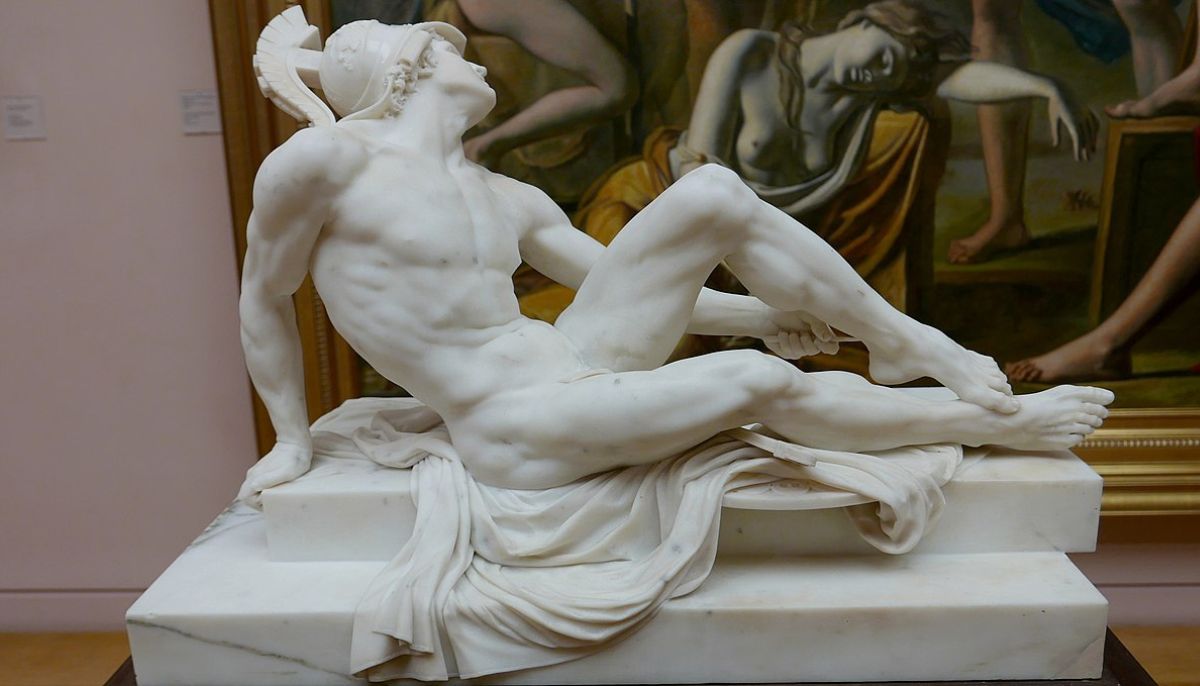
From the pages of myth and the forge of history emerges the Heroic Age—a period that bridges the gap between pure myth and the realm of historical reality. Heralding a new epoch, this age resonates with the echoes of heroes, their valor, and the indelible mark they left upon the world.
In the Heroic Age, humanity stepped onto a path intertwined with historical events, as recounted by poets like Homer. These heroes, better and mightier than the men of the past, are celebrated for their exploits, their virtues, and their tragic flaws. The splendor of this era shines through the tales of Achilles, Hector, and the fabled Siege of Troy—a conflict that ignited the imagination of both ancient and modern minds.
A new perspective emerged as men engaged in the grand theater of war and destiny. The Heroic Age weaves the threads of myth into the fabric of history, a time when the distinction between gods and mortals becomes less pronounced. The heroic sagas are imbued with the essence of humanity’s struggle, aspirations, and resilience—a narrative that anchors itself in the reality of battles fought and destinies intertwined.
The Heroic Age introduces a shift in the afterlife as well. Unlike their predecessors, when men passed on in this era, their souls journeyed to Elysium—an ethereal realm reserved for the finest mortals. Elysium offers respite and reward for those who have earned their place through deeds and virtue. This transformation in the afterlife mirrors the shift in human consciousness—an evolution from the divine interplay of the past to a time where human agency, virtue, and valor take center stage.
The Heroic Age’s narrative stands as a testament to humanity’s capacity to navigate the intricate interplay between myth and history. As we traverse its realms, we witness the emergence of heroes who embody the spirit of their era, resonating with valor, mortality, and the enduring pursuit of greatness.
Iron Age
As we approach the culmination of the Greek Ages of Man, the Iron Age emerges—a somber epoch that bears witness to the erosion of humanity’s connection with both the divine and the heroic. This age, situated in Hesiod’s own time, casts a shadow of disillusionment, a stark contrast to the mythic splendor that preceded it.
The Iron Age is a testament to the complexity of the human experience, as it reflects the grim realities of an age where misery reigns. In this era, humanity stands forsaken by the gods, their divine presence receding like a distant echo. A stark departure from the harmonic union of earlier ages, the Iron Age is characterized by strife, distrust, and an insatiable appetite for material gain.
Hesiod, the voice that echoes through time, predicted this age of decline. He prophesized that Zeus, the ruler of the divine realm, would eventually return to bring about its end—an apocalyptic reckoning, signaling the culmination of human folly and the ultimate divine judgment.
The Iron Age serves as a poignant reflection of the ancient Greek poet’s own period, an era where the beauty and grandeur of myth gave way to the stark reality of human existence. It is a narrative thread that weaves the mythology of the past into the fabric of history, providing a glimpse into the profound interplay between the tales of gods, heroes, and the fragile tapestry of humanity.
Understanding Hesiod’s Five Ages of Men
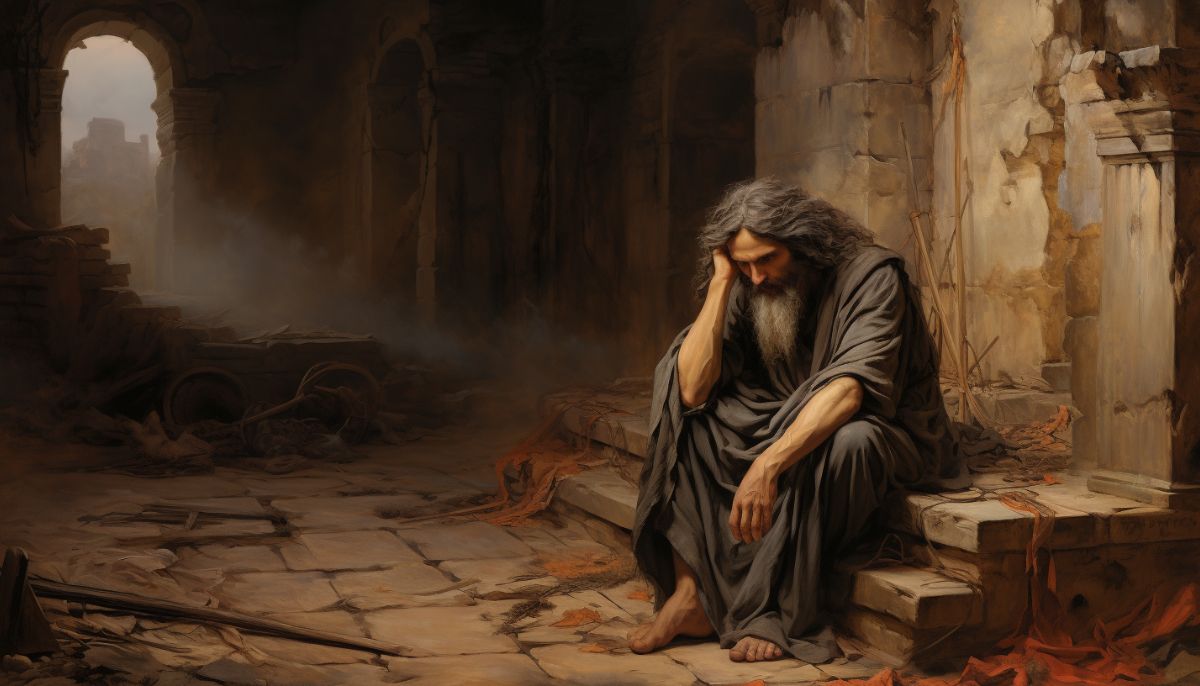
Hesiod’s profound insights into the Greek Ages of Man serve as a timeless bridge that connects the ethereal realms of myth with the palpable contours of history. Just as his narrative shifts from the Golden Age’s purity to the Iron Age’s disillusionment, Hesiod’s understanding of Greek myth parallels our evolving comprehension of history—a transition from myth to historical accounts.
Hesiod’s narrative mirrors a shift that would later find resonance in the works of historians like Herodotus, who laid the foundations for historical inquiry. As we ponder Hesiod’s exploration of humanity’s past, we glimpse the emergence of an evolving awareness—a transition that mirrors the inherent tension between the realms of the divine and the mortal.
Reflections of Hesiod
Interestingly, Hesiod’s longing for a utopian past, reflected in the Golden Age, reverberates across history’s tapestry. Whether in Rome’s yearning for the idealized Republic or echoes in Christian writings envisioning an idyllic Eden, this sentiment transcends cultures and epochs. Hesiod’s narrative thus becomes not just a mythic account, but a mirror that reflects humanity’s universal longing for a time of purity and harmony.
As we conclude our journey through the Greek Ages of Man, we recognize the intricate dance between myth and history. Hesiod’s legacy is not only a treasure trove of mythic sagas but a profound insight into the human psyche—a testament to our enduring quest for understanding, meaning, and a connection to the divine, whether in the golden echoes of ages past or in the ever-shifting sands of time.
